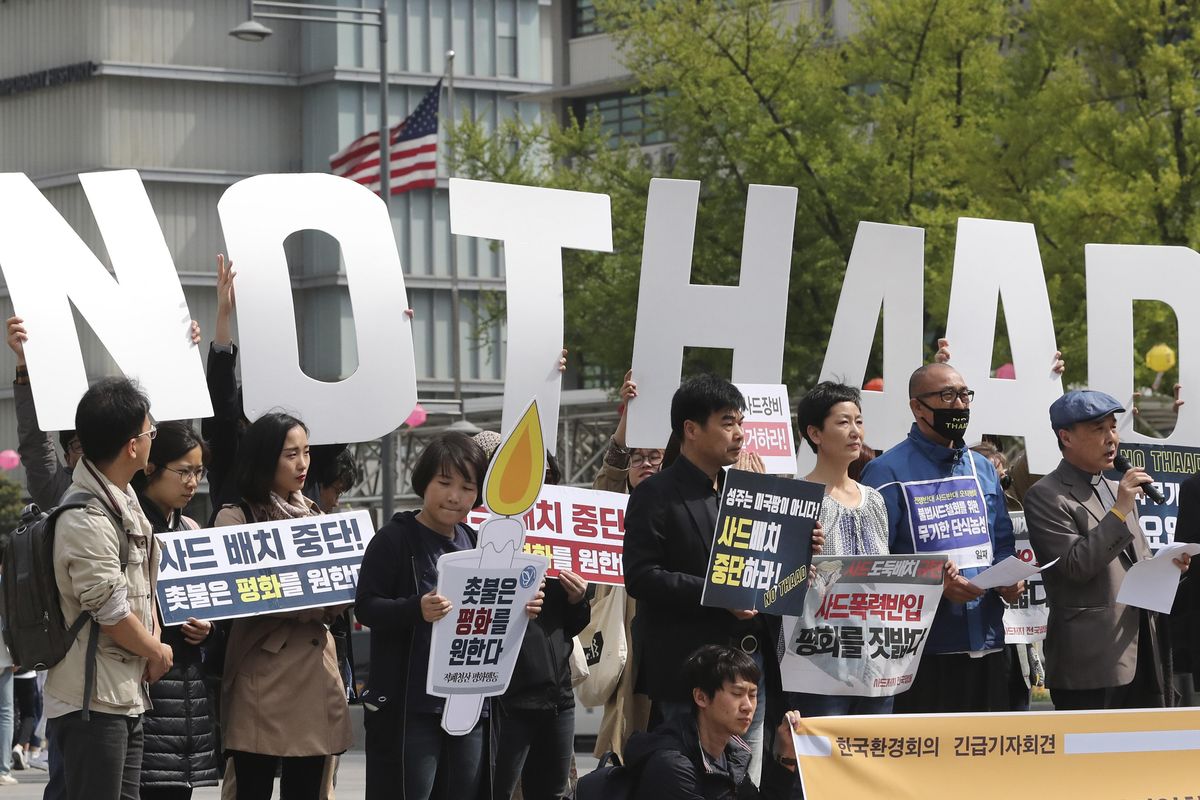Controversial missile defense shield operational in South Korea

A U.S. antimissile defense system recently installed in South Korea is now operational, a U.S. official said Monday, in the latest sign of an enhanced U.S. response to threats from North Korea.
The official, speaking on the condition of anonymity to discuss military operations overseas, said the Terminal High Altitude Area Defense, or THAAD, an American-made system to intercept and destroy ballistic missiles, had reached initial operating capability.
The U.S. military’s installation of the THAAD battery in South Korea has been hotly contested. China considers the system a threat to its own security, while critics in South Korea allege that the United States is scrambling to set up the system before that country can hold a presidential election that might lead to a decision to halt its use altogether.
The scrutiny of the THAAD installation, which has been under discussion with Seoul for years, reflects heightened tensions over North Korea’s ballistic missile and nuclear programs, which have made advances in recent years and which American officials fear could reach the point of posing a nuclear threat to the mainland United States.
The Trump administration has made a range of statements about its military posture toward North Korea and its willingness to employ force to prevent the continuation of Pyongyang’s nuclear weapons program. In an interview made public Monday, President Trump said he would be “honored” to meet with North Korean leader Kim Jong Un under the right circumstances. A day earlier, he refused to rule out military action against Pyongyang.
The THAAD system has taken on new urgency for the United States as South Korea approaches its May 9 election. The leading candidate in that race has said he would review the previous government’s acceptance of THAAD.
Lt. Gen. H.R. McMaster, Trump’s national security adviser, suggested Sunday that the United States might in the future ask South Korea to reimburse the United States for at least some of the THAAD system.
“What I told our South Korean counterpart is until any renegotiation, that the deal is in place. We’ll adhere to our word,” McMaster said, referring to a recent conversation with a senior South Korean official.
“But what the president has asked us to do is to look across all of our alliances and to have appropriate burden-sharing, responsibility-sharing. We are looking at that with a great ally, South Korea,” he said.